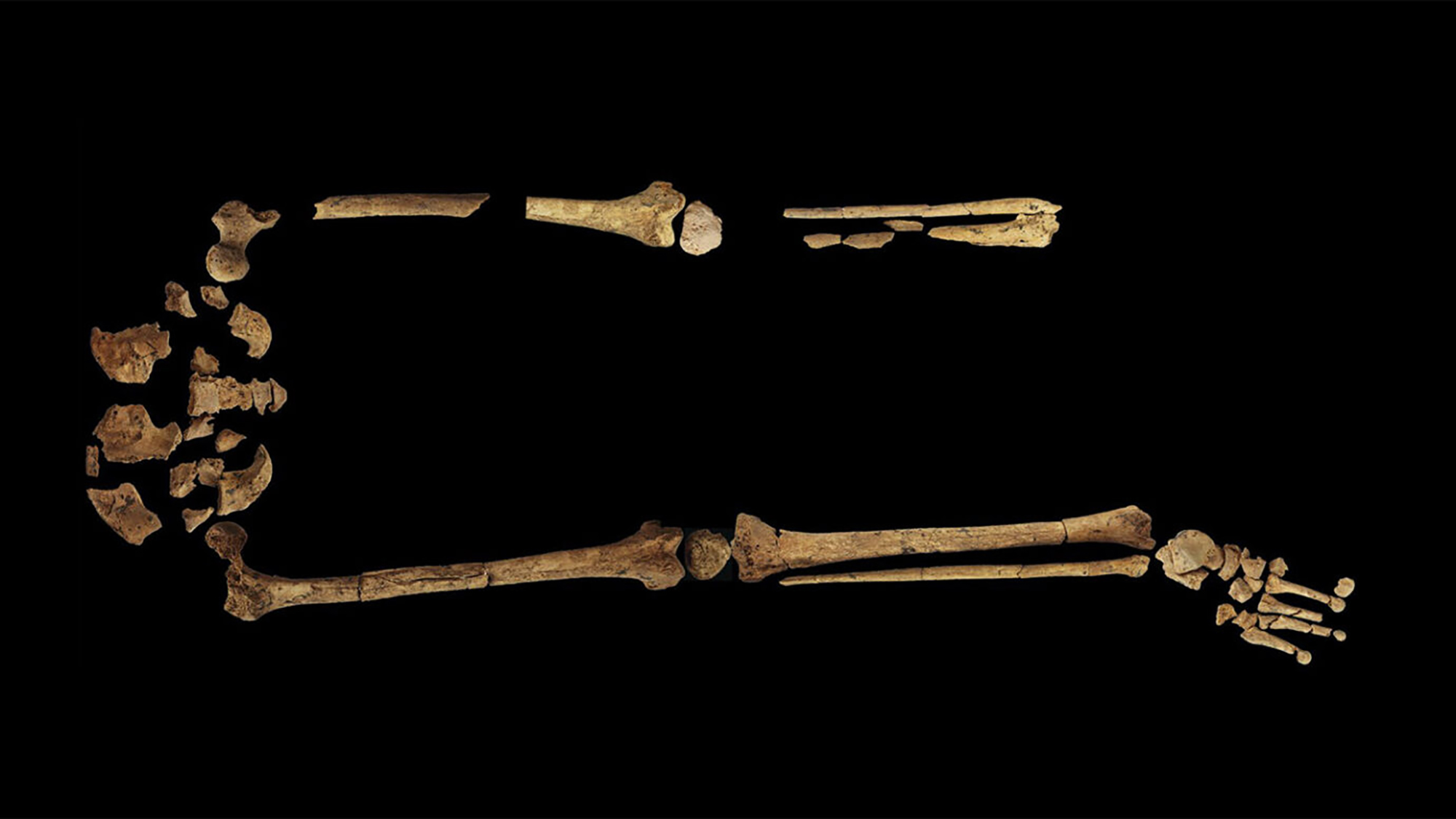Surgeons 30,000 years ago
- Borneo, 31,000 years ago. A 10-13 year-old boy suffered an accident or illness that caused severe damage to his left leg. To save the boy's life, his foot was amputated, cut by the vernacular leg.

Borneo's boy was operated on without anesthesia or antibiotics, but he was fine. This is the oldest known surgical intervention, according to a study recently published in the journal Nature. The skeleton was discovered in the Liang Tebo cave in 2020 by a team of archaeologists from Australia and Indonesia. Besides deducing that the individual had his leg amputated, he was healed quite well. The boy survived other years and died at the age of 19-20 due to reasons beyond amputation.
The operative patient should have detailed knowledge of anatomy and be able to avoid hemorrhage that would have killed the patient.
Researchers are clear that amputation was not caused by trauma or accident. For example, amputations caused by animal attacks cause crushed and crushed fractures, and the Borneo skeleton has a clear oblique incision, similar to that produced by a surgeon with sharp instruments.
The operative patient should have detailed knowledge of anatomy and be able to avoid bleeding that would have killed the patient. But for researchers, resistance to the effects of the intervention is more significant. In one of these wounds, the risk of infection is very high. In addition to their surgical capacity, they had to know the properties of the surrounding plants well.
So far, the oldest trace of an amputation has been carried out 7,000 years ago to a farmer in France, whose left forearm was missing. Therefore, the experts believed that the complex medical knowledge for this type of operation reached the Neolithic, in line with the development of agriculture. But Borneo's kid shows that much older collecting communities were able to do it. In the absence of further evidence, experts do not know whether the Bornean community had advanced unusual knowledge or whether this complex medical culture was spread outside the island. But research team leader Tim Maloney says the discovery “can shake the way we understand the history of medicine.”
Washington (EE.UU. ), 1807. The US Constitution banned transatlantic slave trade. This does not mean that slavery has been abolished, but that the main source of the slaves has been interrupted. Thus, slave women became the only way to “produce” new slaves.
So in 1845, in... [+]
What blew me a lot is the way some doctors talk to the patient. They talk to us about pain as if we were children. As I have had two kidney transplants, I know what I mean: among other things, I have had a tube inside my penis. Because of the anesthesia, I didn't feel how I got... [+]
Today I have come to start with my words.
Four years!
I've taken four years to get my life back.
Four years also lived to flee the prison.
Four years… In silence… Just… Leaving aside the life of the past… To understand the functioning of my different mind and to... [+]
Lack of good doctors for a high middle grade policy. This policy has ensured that very few young people have reached the medical career and the MIR has further removed people from that career.
And there are few Basque doctors because the knowledge of Euskera in this profession... [+]
Rainy red mornings, red blondes. Little with the Aramaio train and soon wind turbines will be installed, destroying the mountains. The wind of the river, from Vitoria, leads us along the same path: the river. Infrastructures yes, all we want, but not socio-health care... [+]
We are now talking more about mental health, psychological well-being and its impact on our quality of life. It is a source of joy, because it helps to get the subject out of the closet, because by showing that the pain we all have (and not a few) the discomfort normalizes and... [+]
Haur eta gazteen egoera emozional eta psikologiko txarra dela-eta, irakasleak gaindituta daudela eta ikastetxe bakoitzean psikologo bat ezarri beharko litzatekeela aldarrikatzen du mugimendu batek. Hari horri tiraka, jakin nahi izan dugu zein den pandemiak eskoletan utzi duen... [+]





















